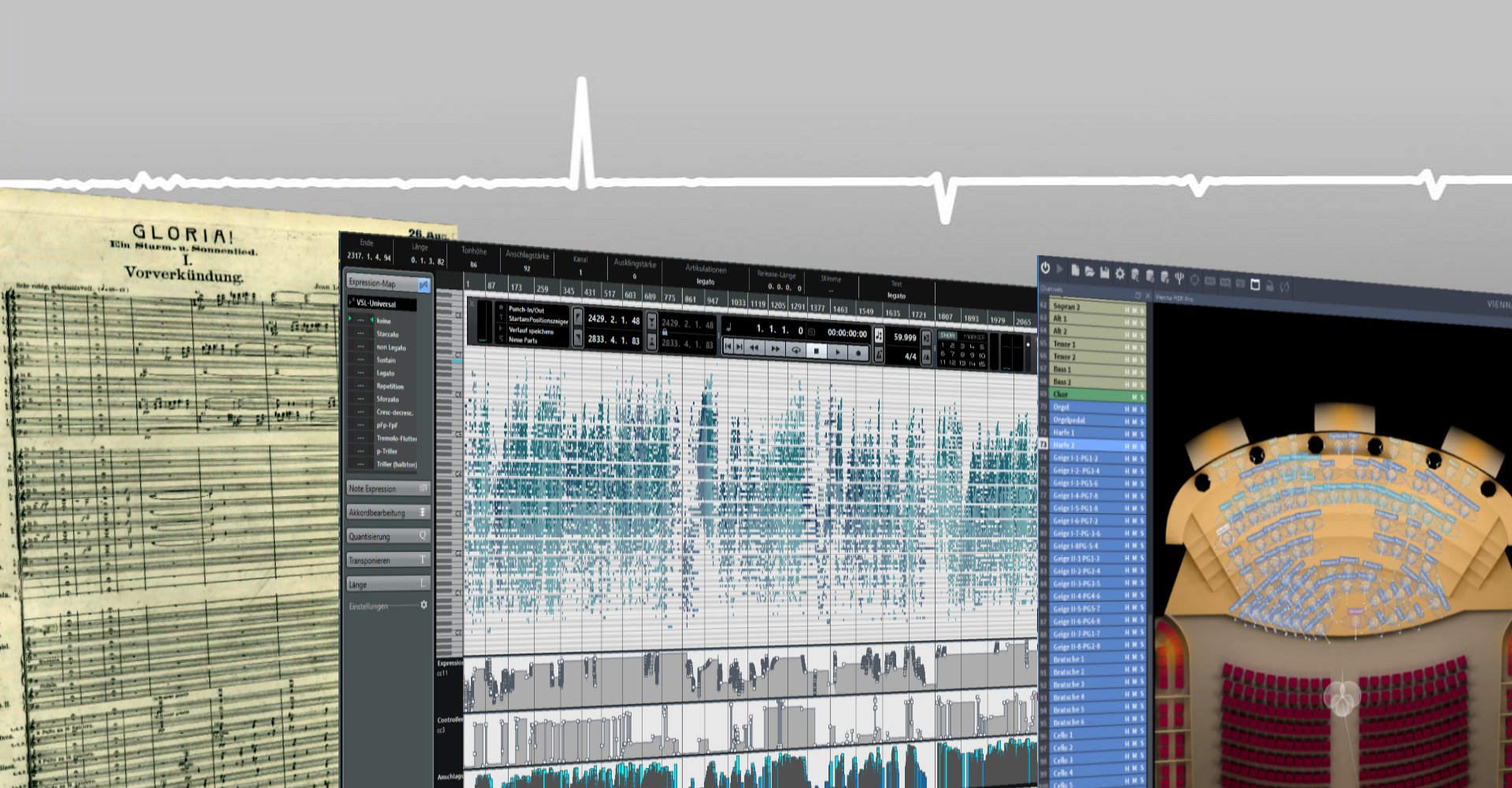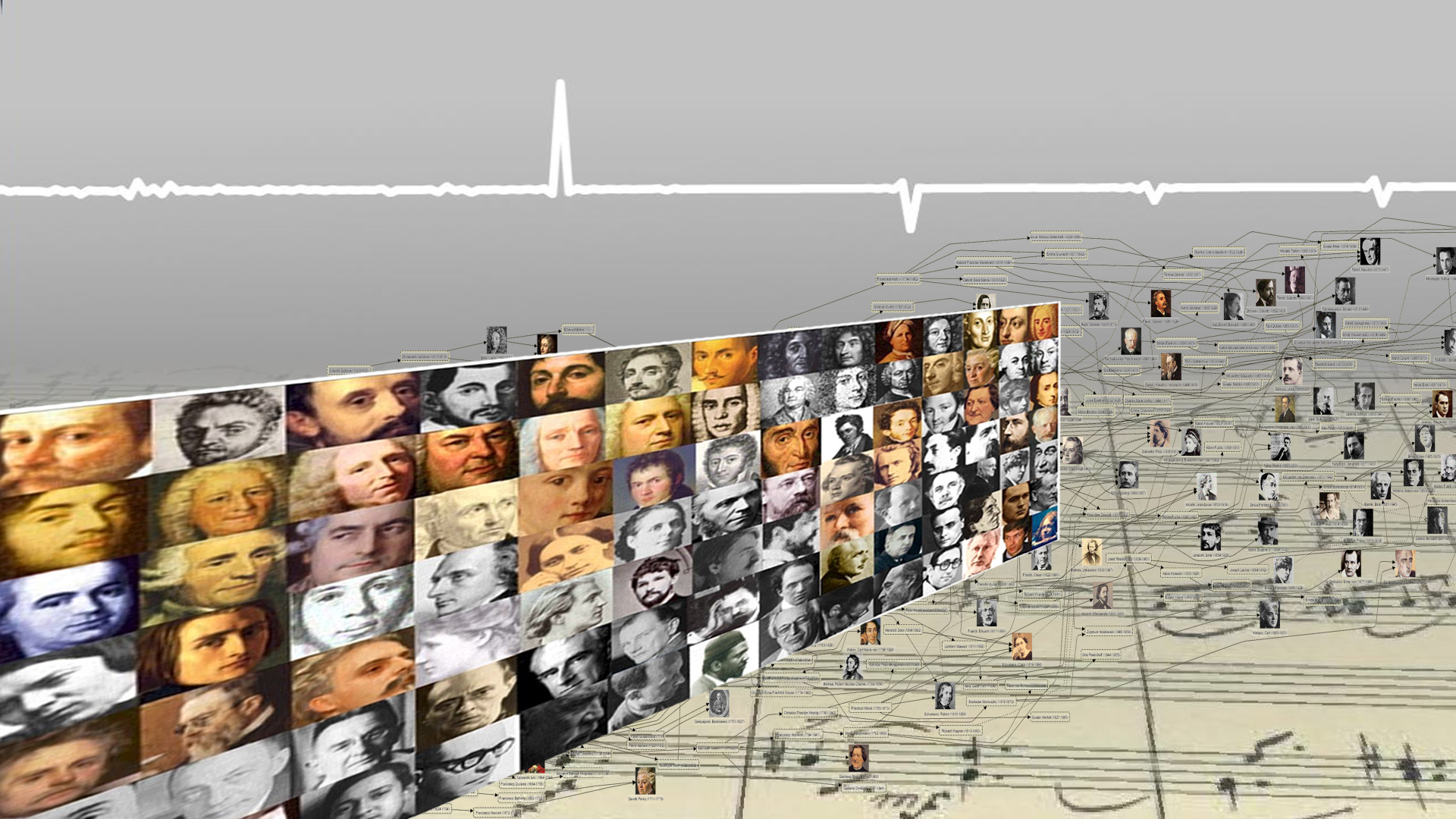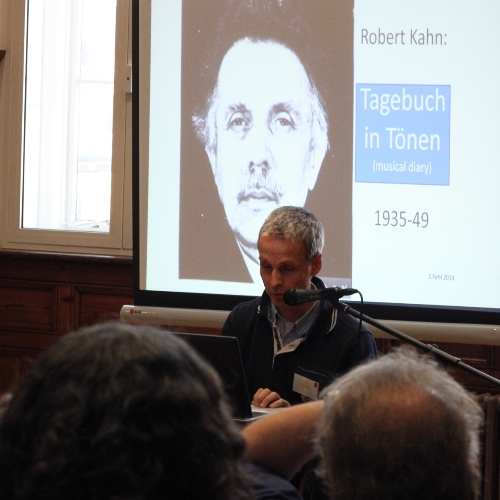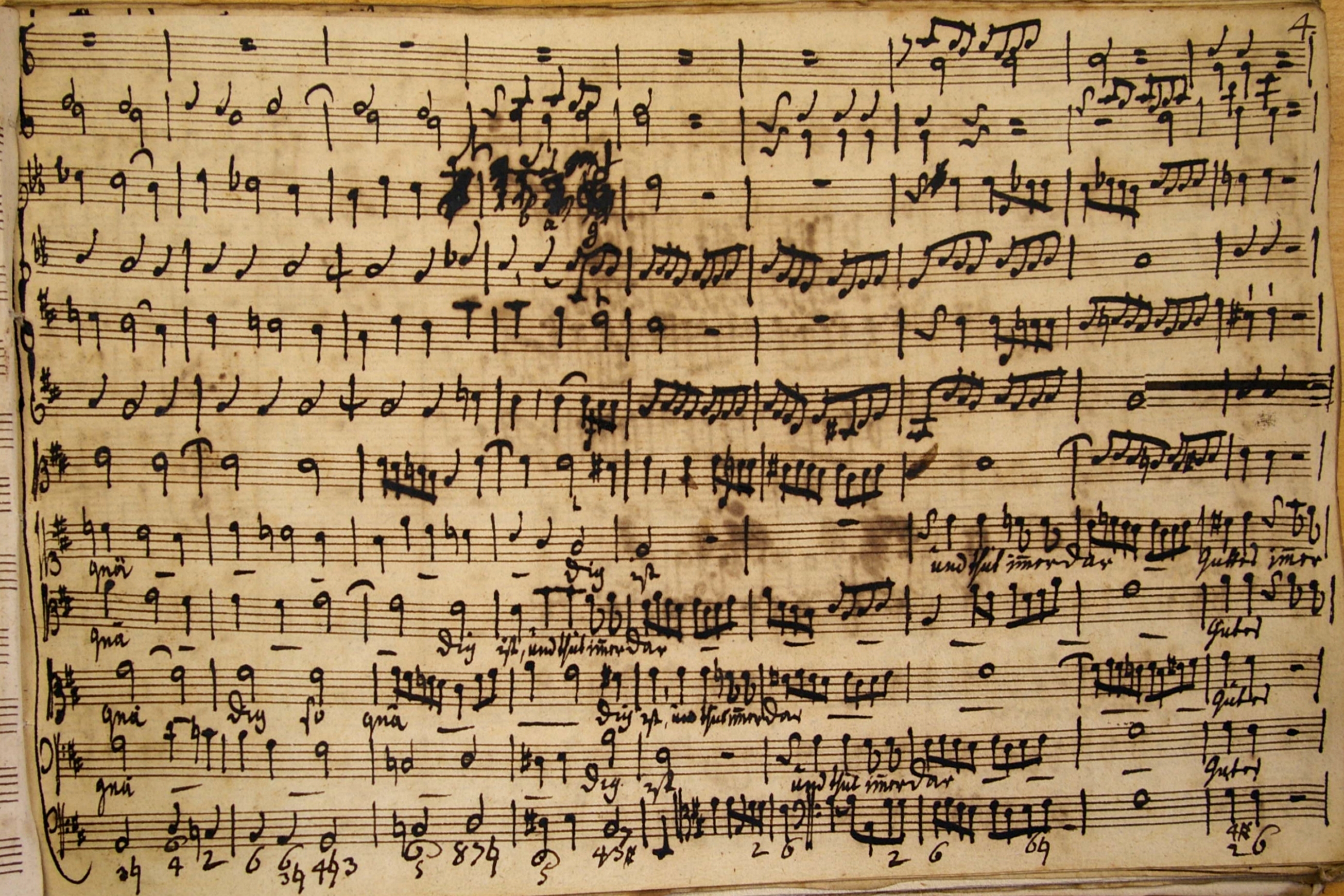
Steffen Fahl:

Digital Virtuosity

Interpretation Experiments

Applied Musicology

Following and continuing the direct transmissions of classical music tradition
(Pict.:Prof.J.S.Benda studying with Edwin Fischer)

Research and cultivate the wealth of musical history with scientific precision.
(Pict.:Symposium RCM-London 2014)

Exploring modern technology to give new answers to the challenges of our musical heritage
(Pict.:KUG-Workshop Graz 2016)

Artistic and scientific formation applied to explore a cultural sustainable use of current technologies
Virtuosity is more than the tempo or dexterity of a performance.
Here you can find some examples of projects which adress very different kinds of historic virtuosity with the aim of a most "virtuos" application of our currently available means of digital mmusic production.
The interpretation of classical music depends primariily on the detailed individual understanding of the musical syntax in a certain composition. Nevertheless this might react sensible aswell on the acoustic response of the instrument chosen, or the way how detailed an understanding of a composition follows the advises of its score.
These possible variations are examined by three kinds of Interpretation experiments.
This corresponds to the large amount of Keyboardmusic still used to play with modern grandpianos which is composed long before those mmodern grandpianos has developed its actual range of possible musical expression.
Haydns 54 Pianosonatas in the sound of a Walther Pianoforte and in the sound of a modern Steinwqy D
In very different musical eras Details we know about a composition might suggest another instrumentation than the currently dominating.
When G.F.Handels wrote in Rome his ambitious "Dixit Dominus" HWV232 this clerical music could only be meant for boys & male voices, meanwhile the demands surpass notably what boyschoirs are usually ready to. Klassik-resampled presents the complete Music exclusivly with Male and boyschoirs.
Some intepretation habits of the standardrepertoire deserve a comparison with the advises of the score which reveals sometimes noable differences to the majority of their interpretations.
Even with a romantic very flexible understanding of the tempoadvises in F. Chopins Pianoconcertos, interpretation based on precise Score-reading differ notably from the most current interpretations.
Partly in cooperation with musicological collegues klassik-resampled makes in several projects never heard before music of manuscripts audible.

Based on transcriptions provided by Dr. C. Goldberg and the german Goldberg Foundation and klassik-resampled presents first realisations of the 12 anonymous unicats, realised each in 5-7 different instrumentations inspired by contemporary musician paintings.
Recordings
In Collaboration with Dr. W.Ensslin (Bach Archiv Leipzig) 12 Cantatas were transkribed from recently discovered manuscripts and currently three of them realised for the Project klassik-resampled
Recordings
Several orchestral Manuscripts were realised in parts based on transcription provided by Members of the International Draeseke-Society
Recordings
In context of a comprehensive Presentation of Alban Bergs complete non scenic works a considerable amount of early works, studies, sketches and fragments, of Alban Berg are realised based on own transcriptions and recontructions of Manuscripts of the Austrian National Library Vienna.
Recordings
Based on privat copies of Manuscripts provided by descendants of Nico Richter first realisations of his two concertos are realised.
Recordings
In collaboration with the descendants one of the major projects is the chamber, choir and pianomusic of this pupil of Johannes Brahms. The Quintet was reperformed 2015 for the first time by the descendants of the composer at the Hohenstaufen Chambermusic Festival.
DetailsPresents nearly 6400 mp3 with nearly 330 hours music composed by 252 composers of the last 600 years produced with the most advanced available software and samplelibraries.
D37077 Goettingen
Ludwig-Prandtl-Strasse 21